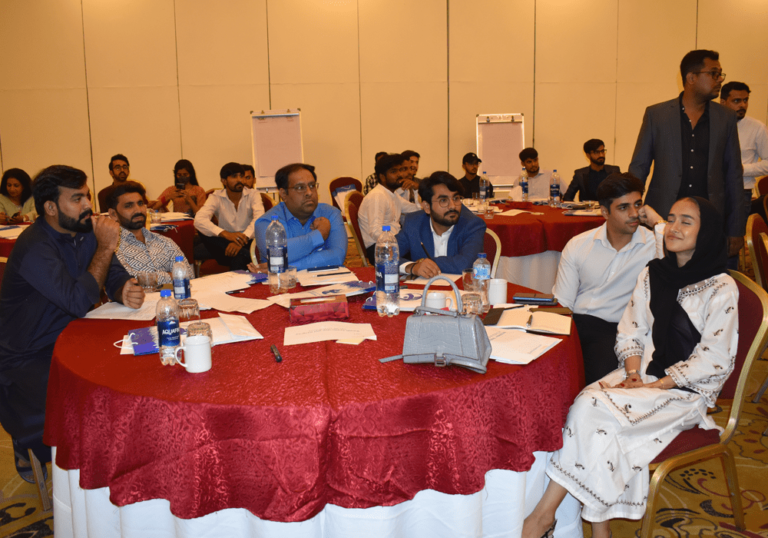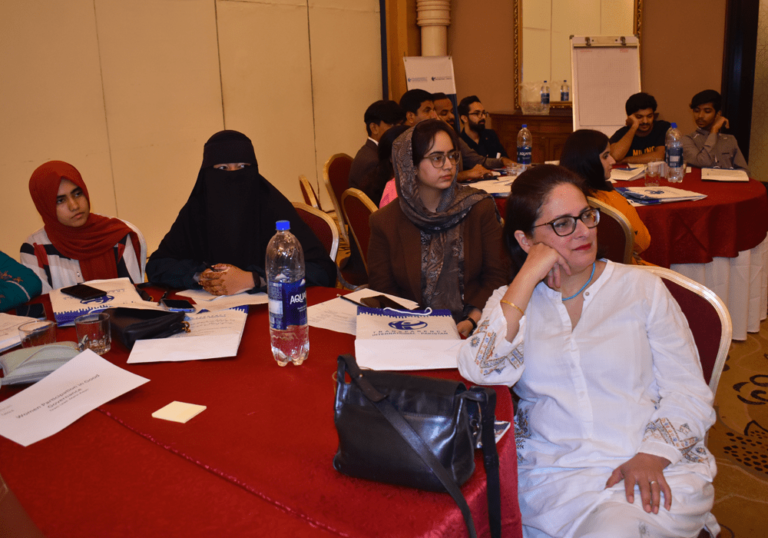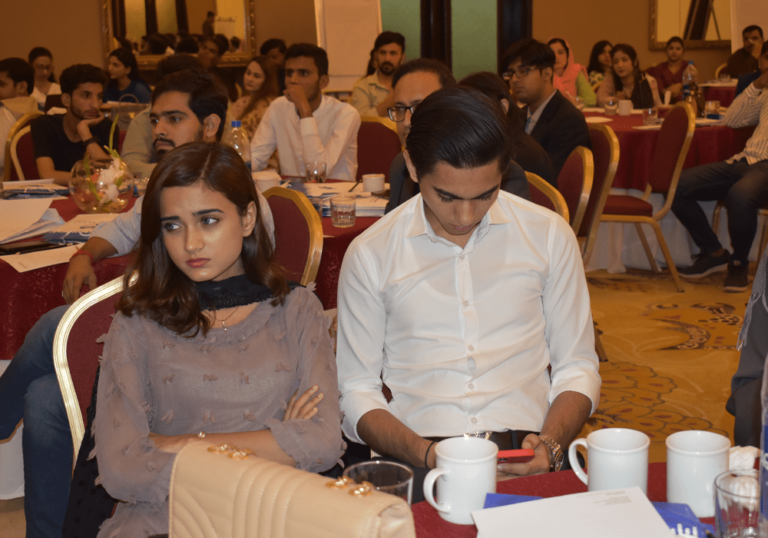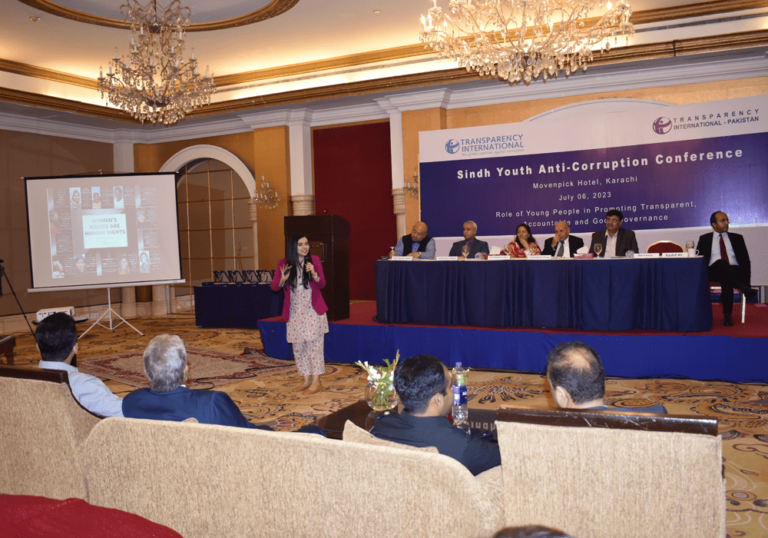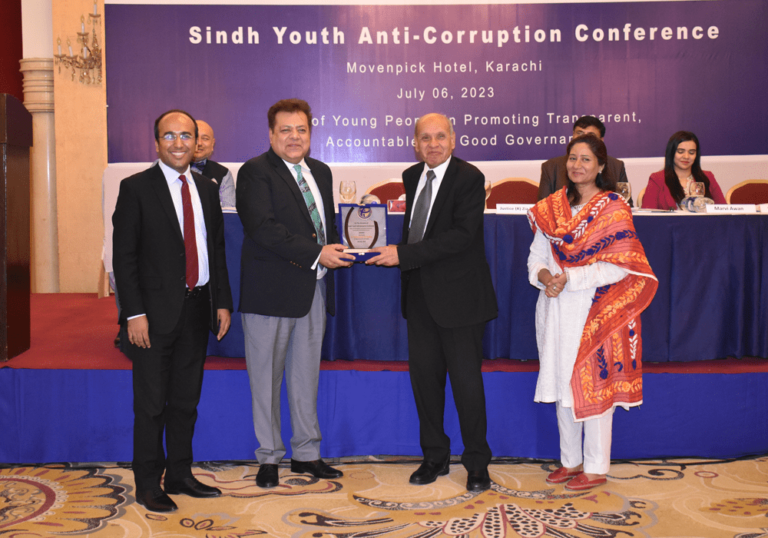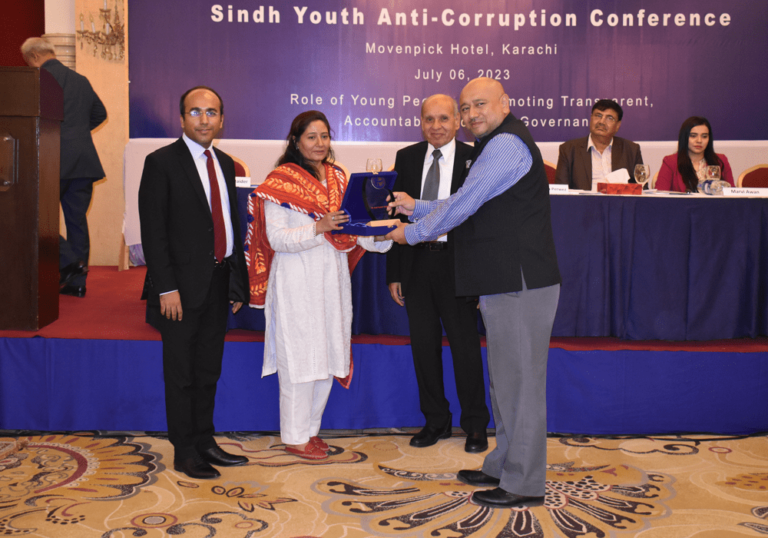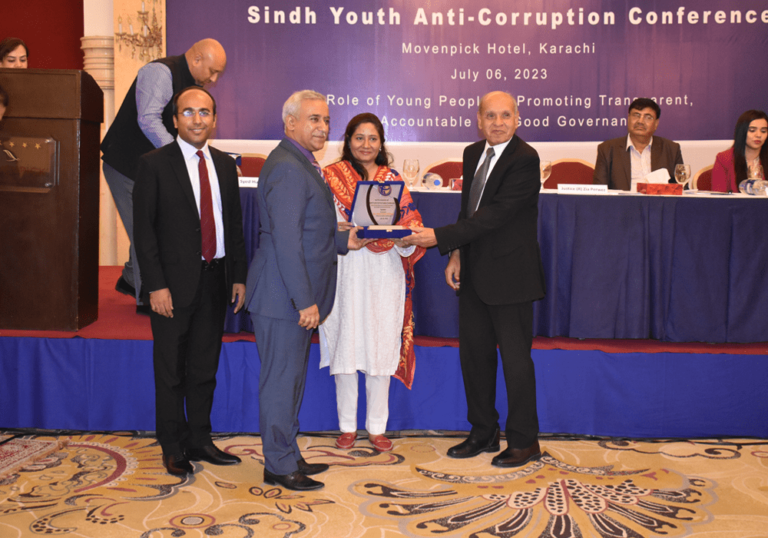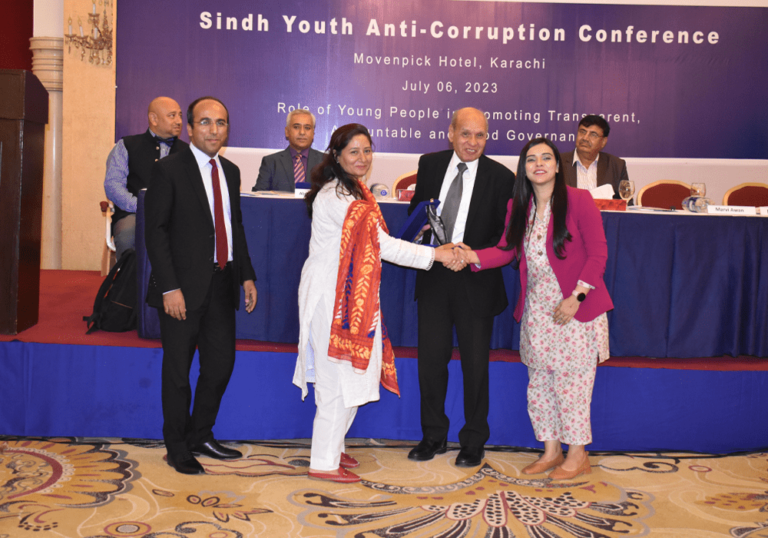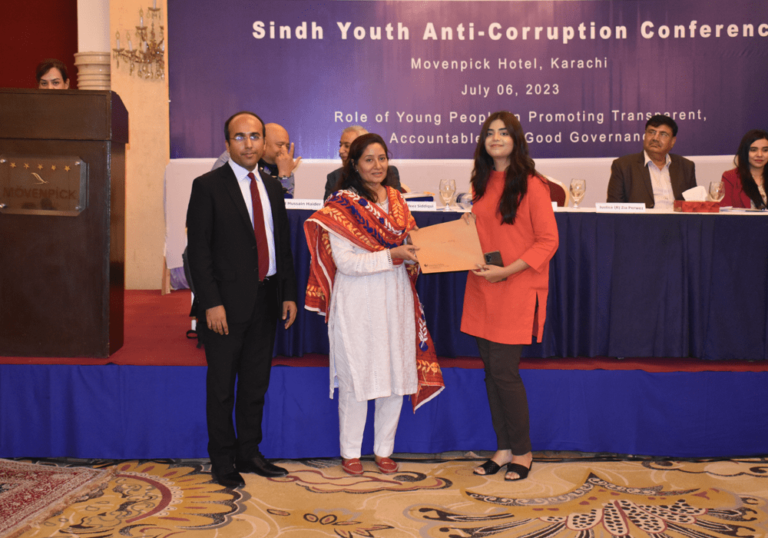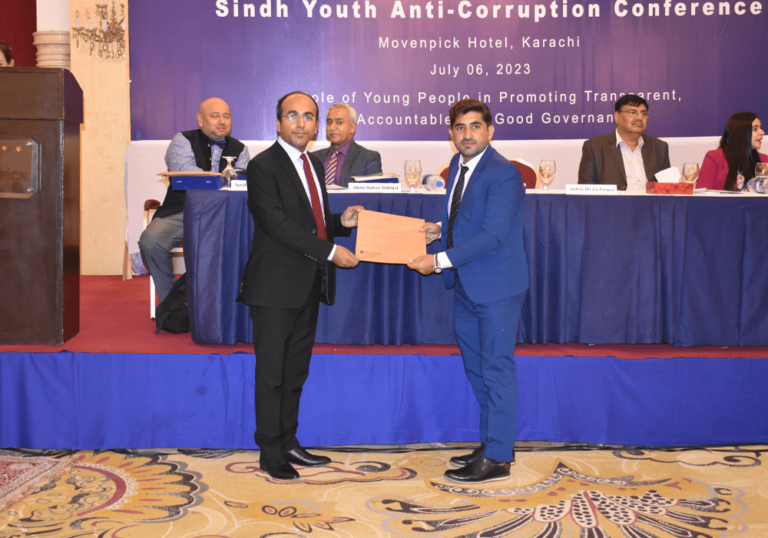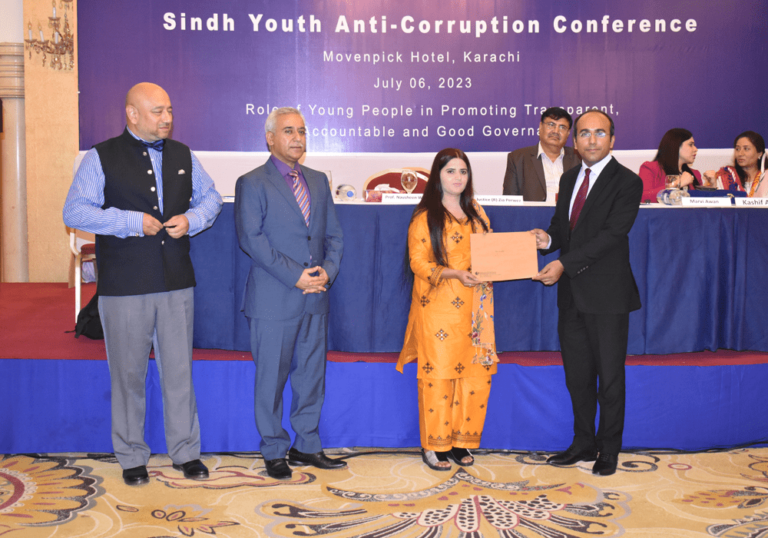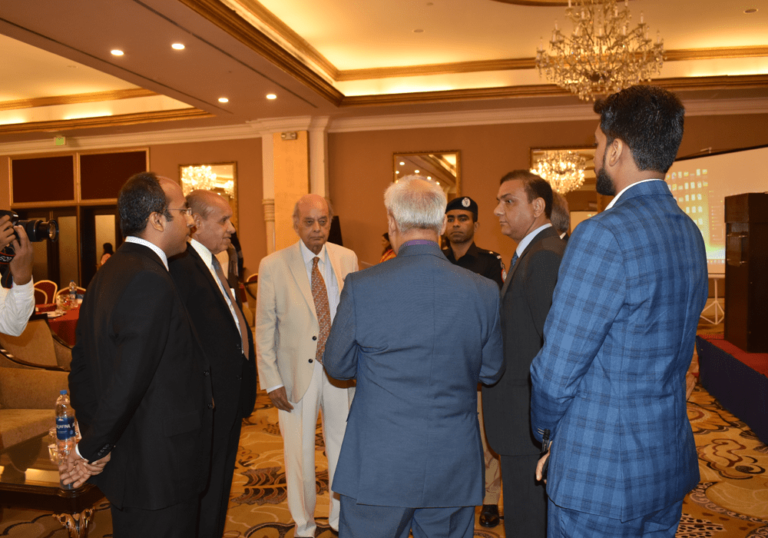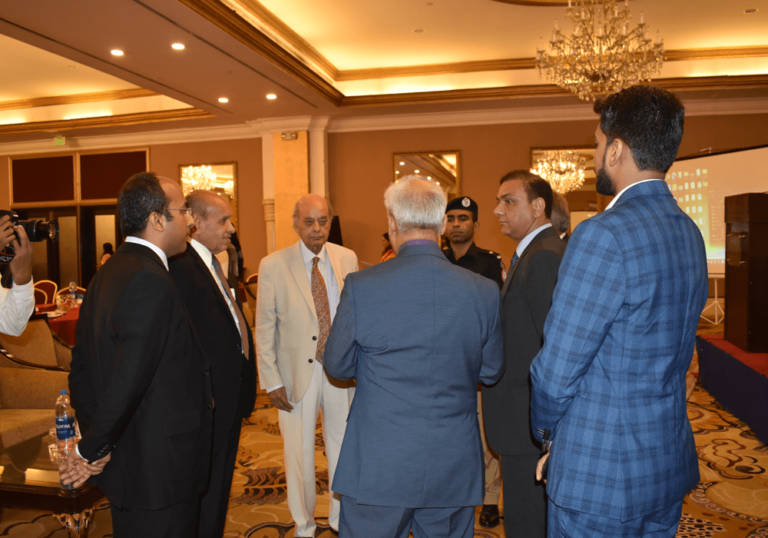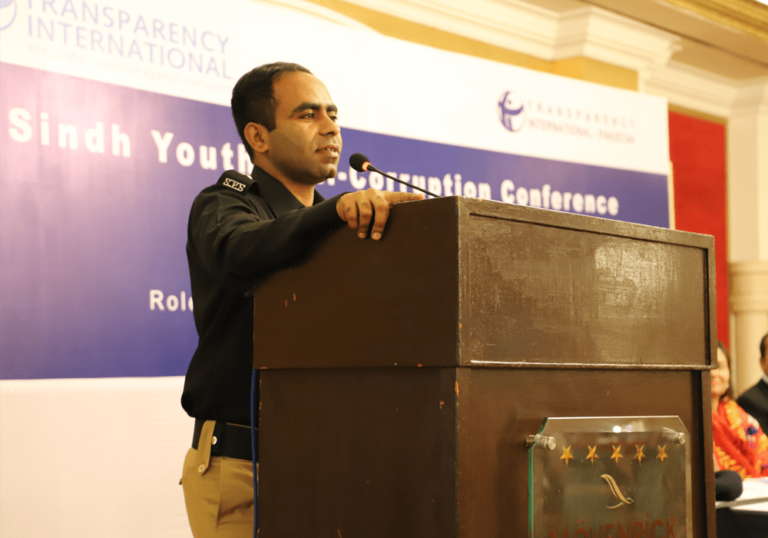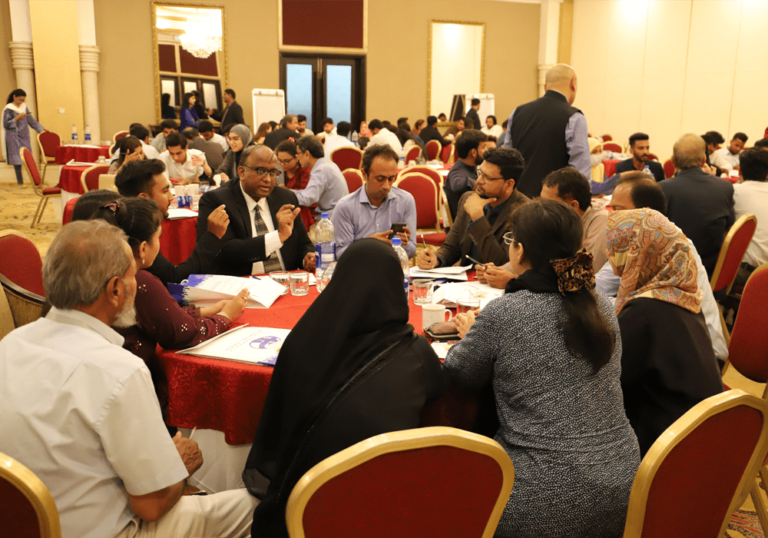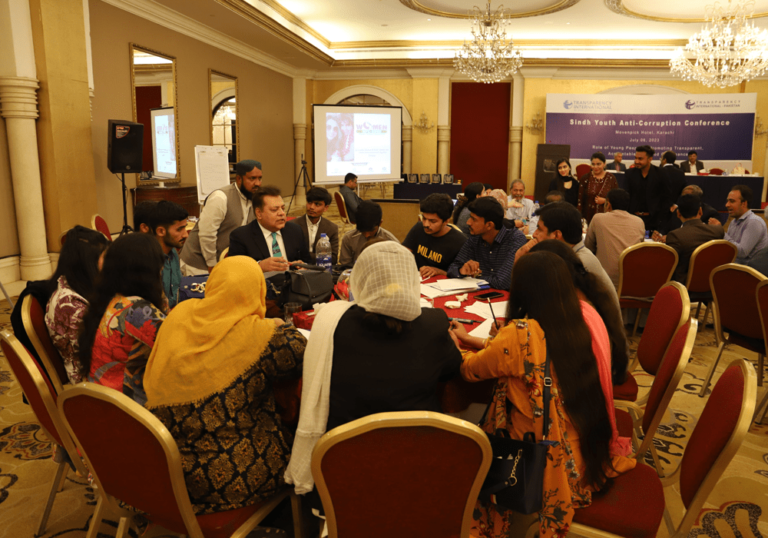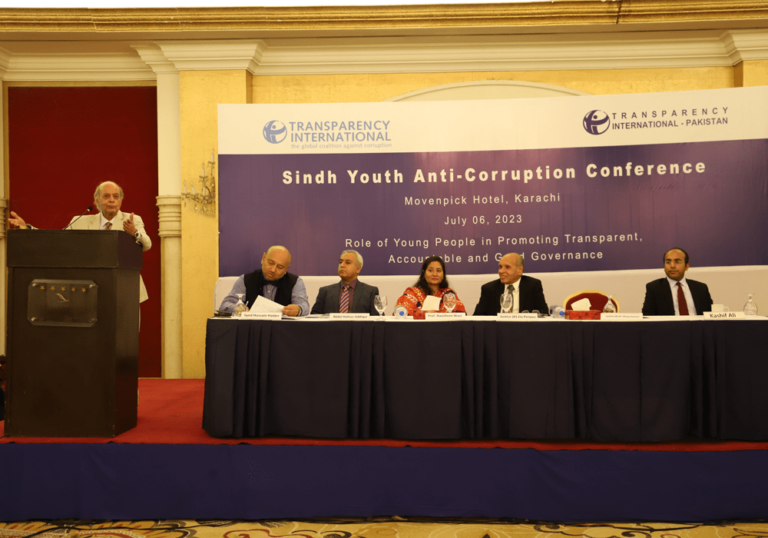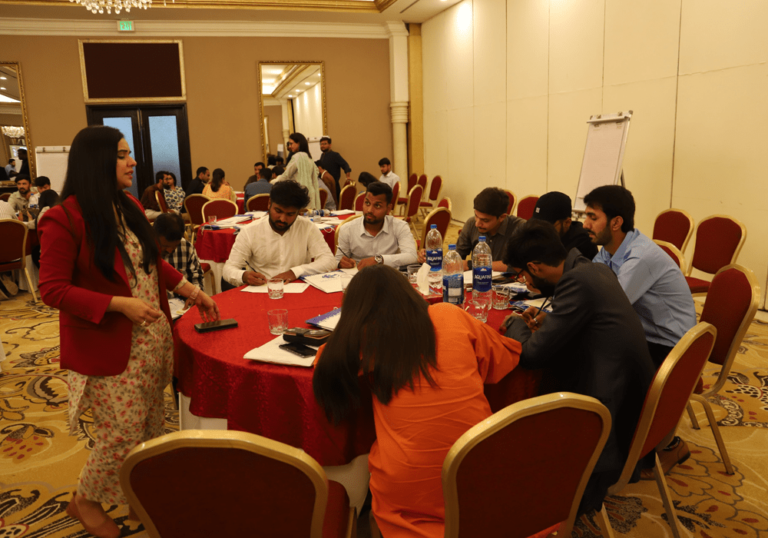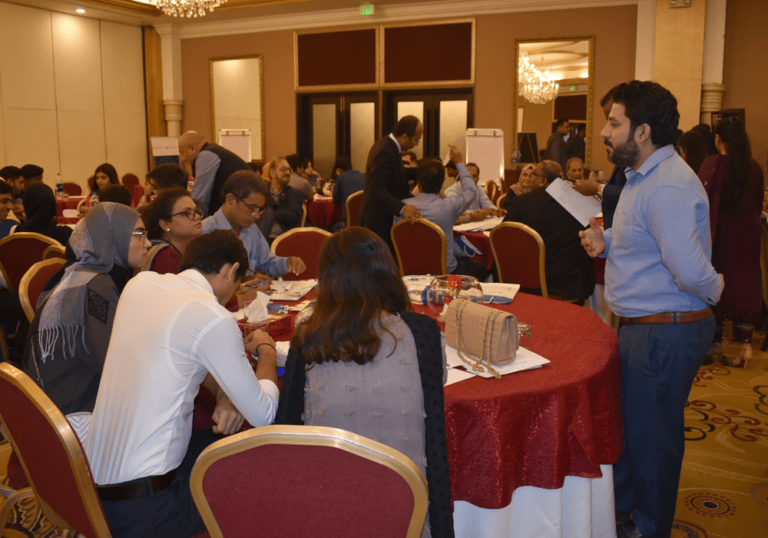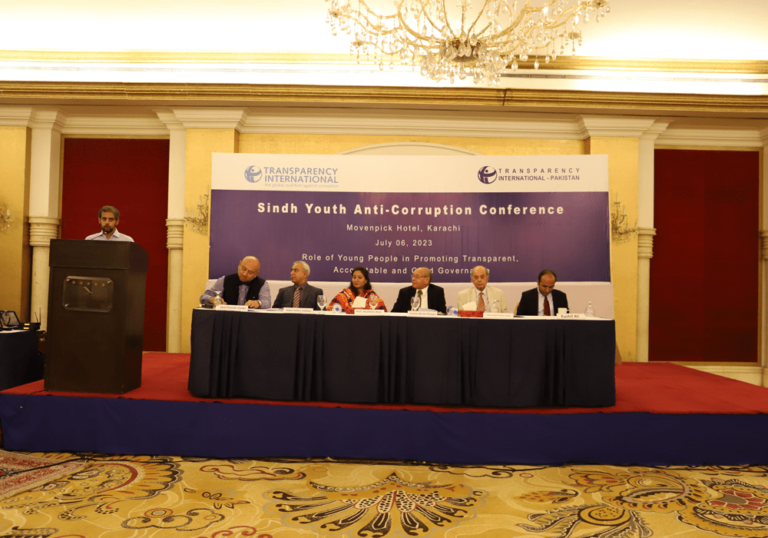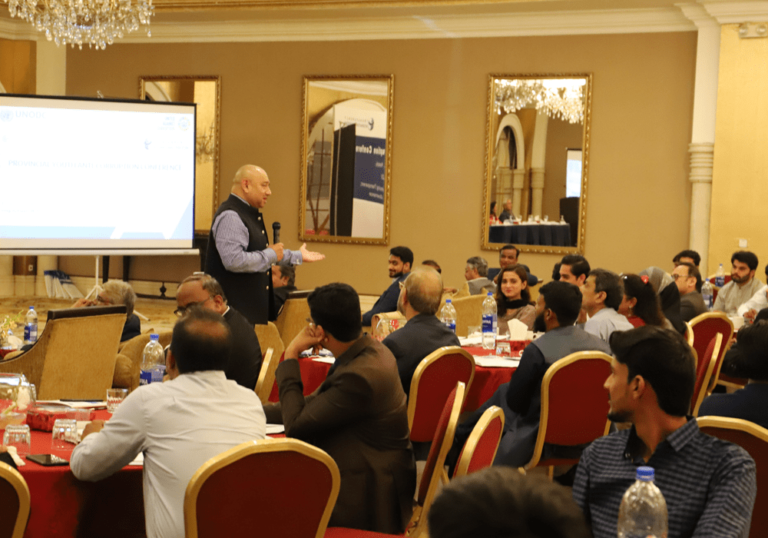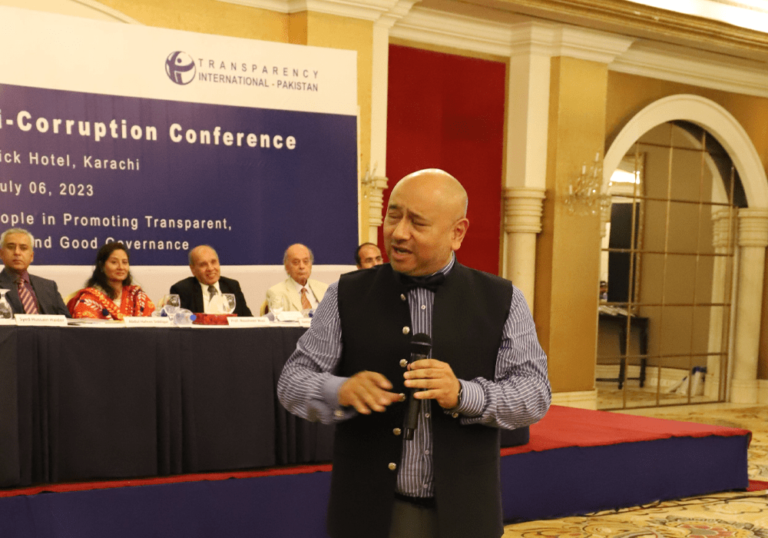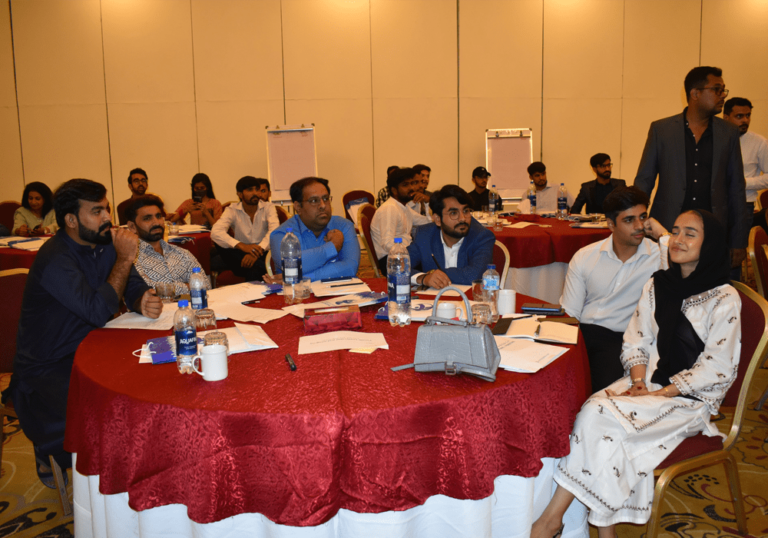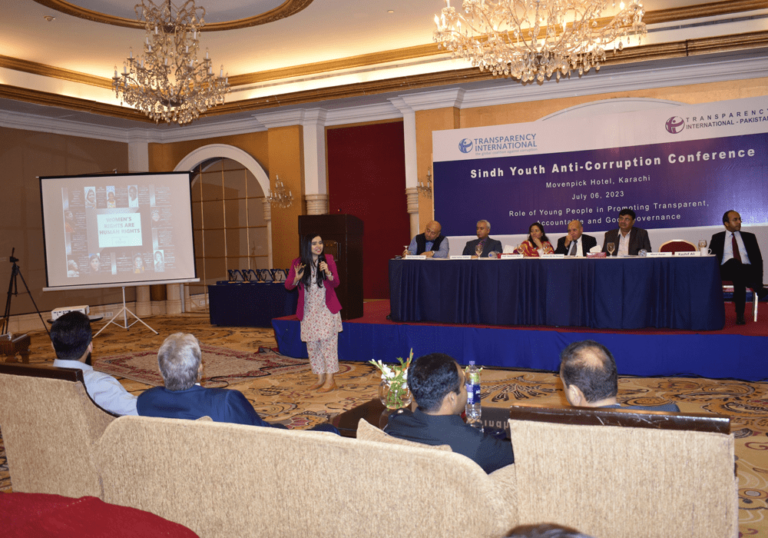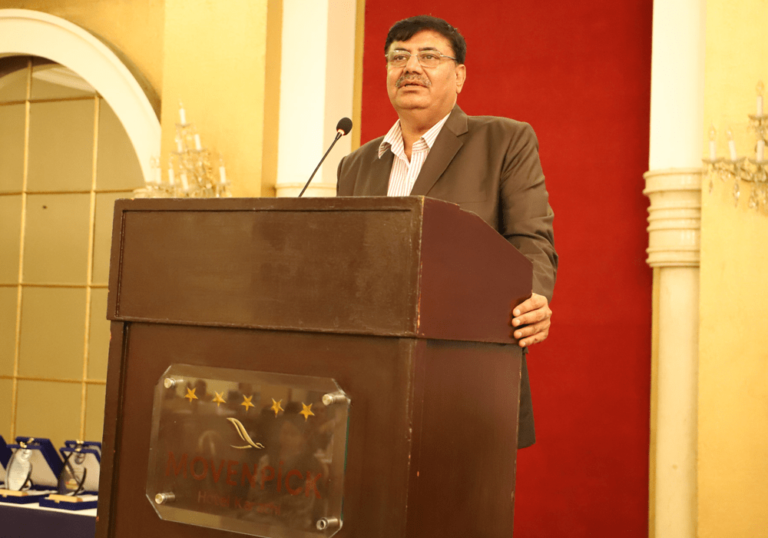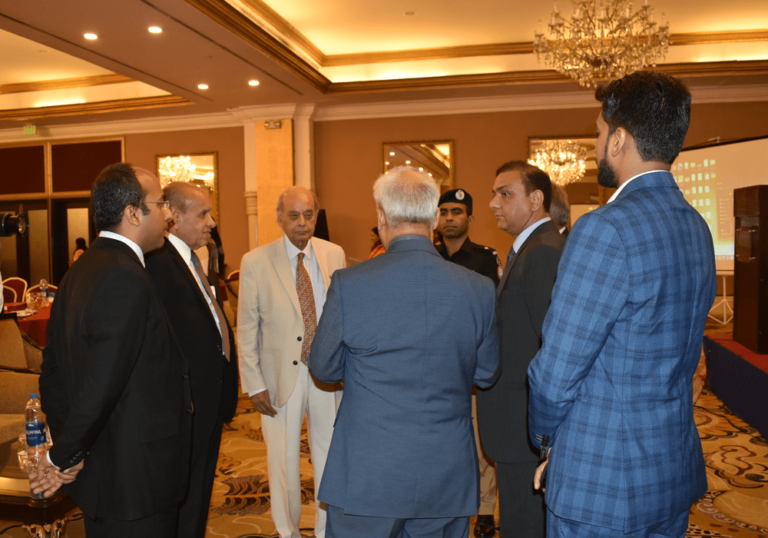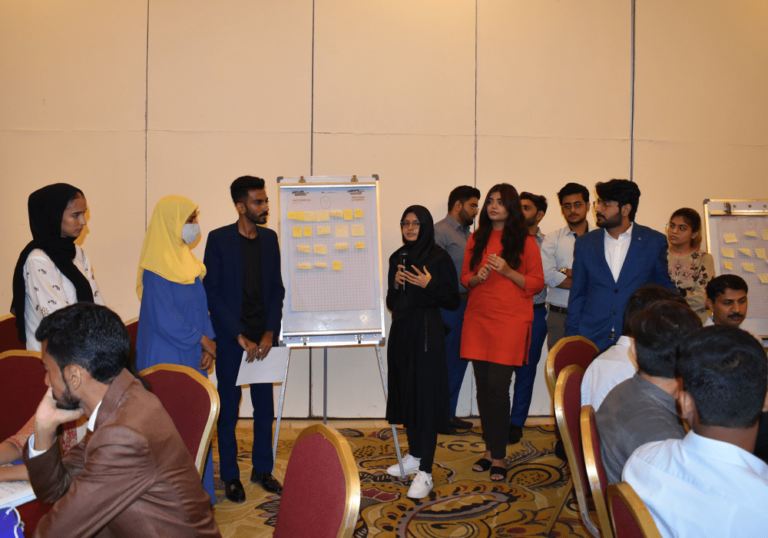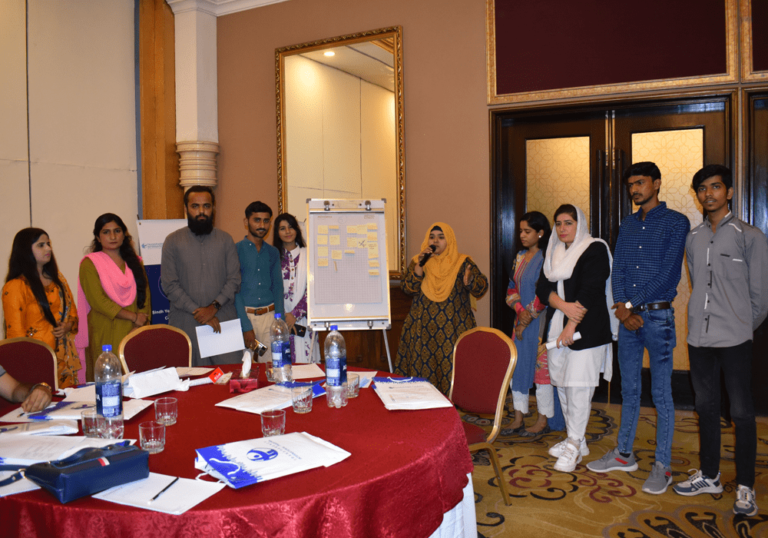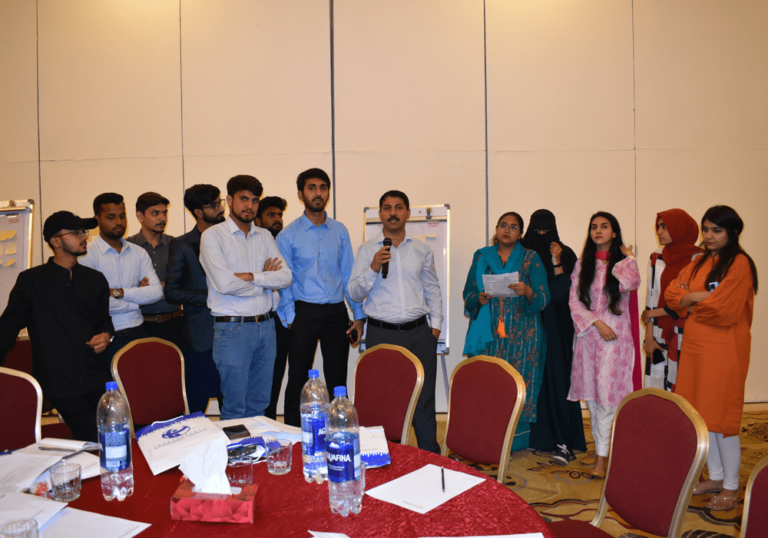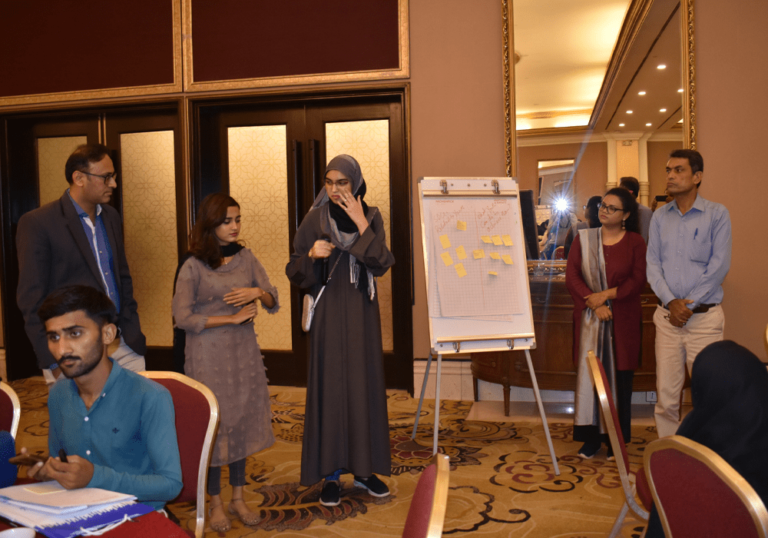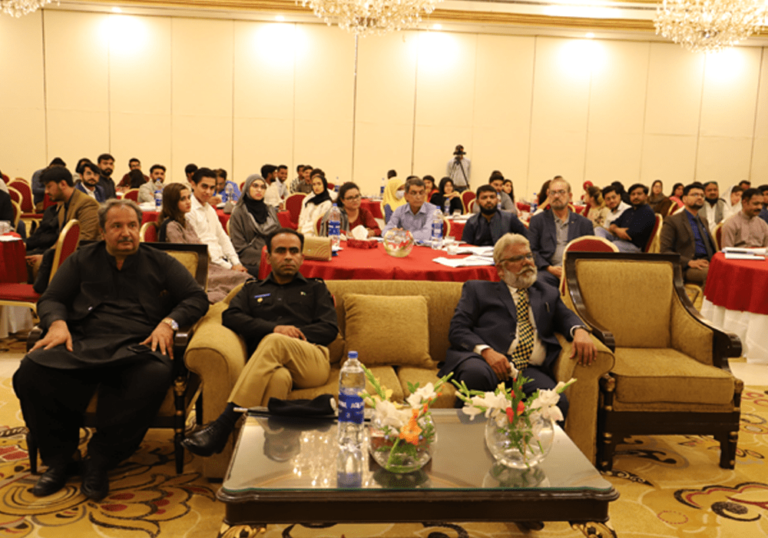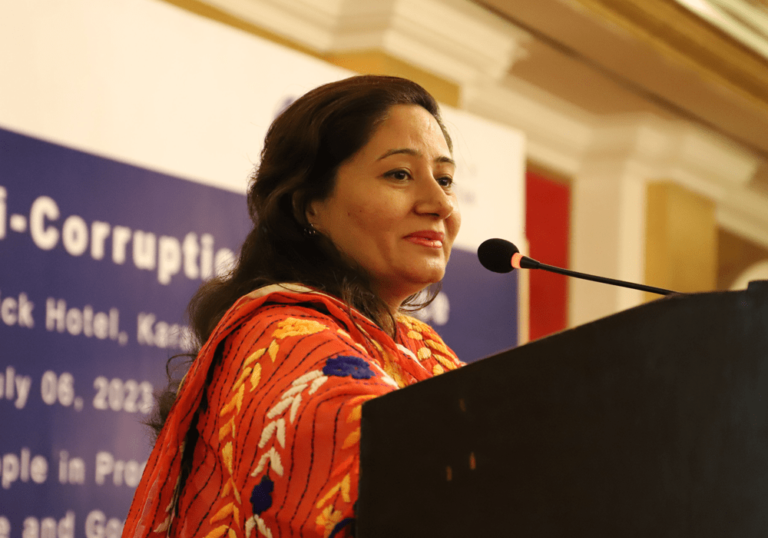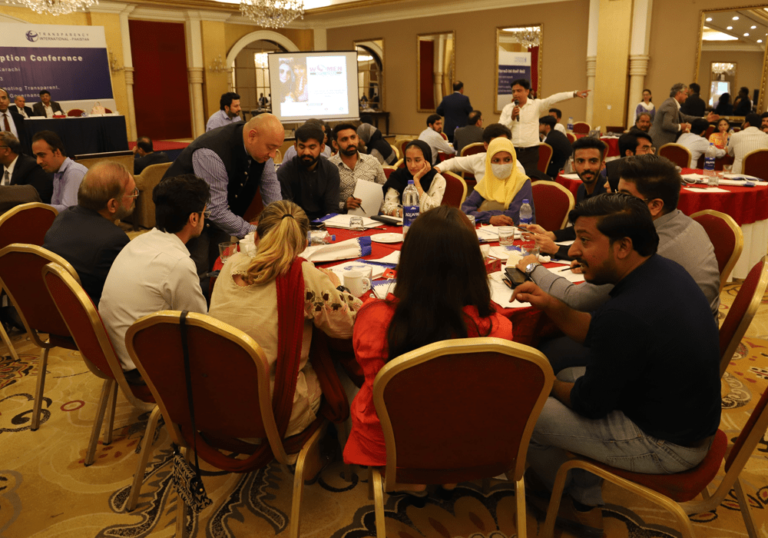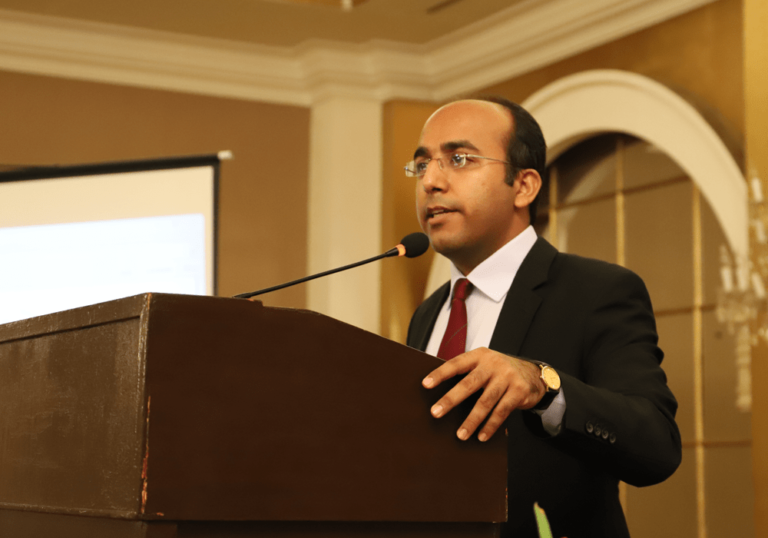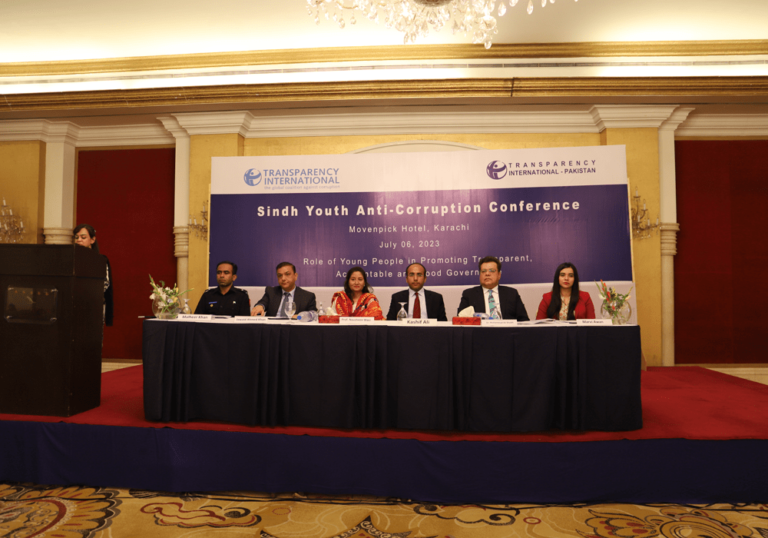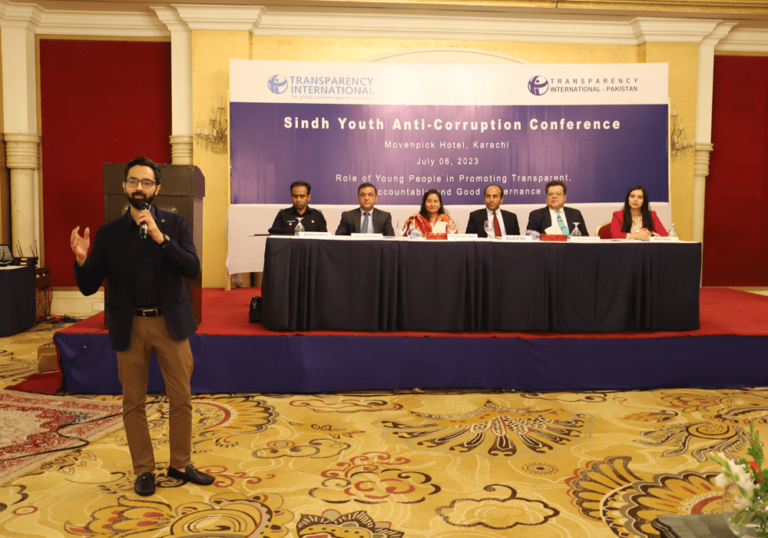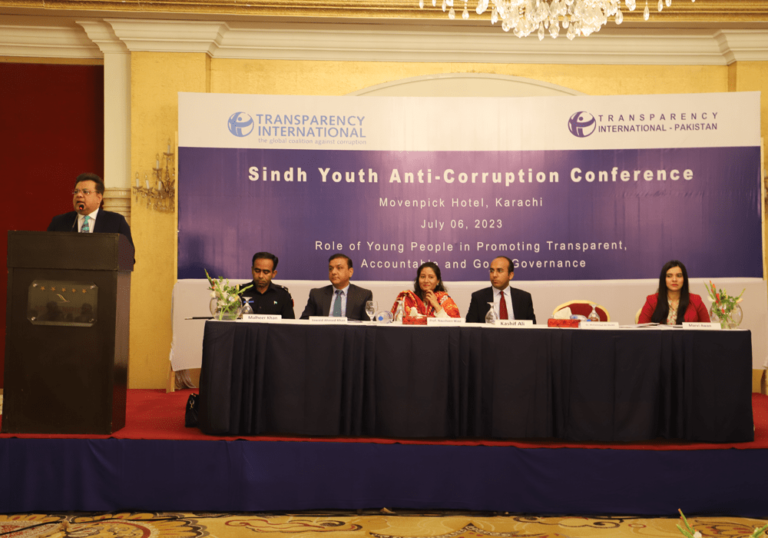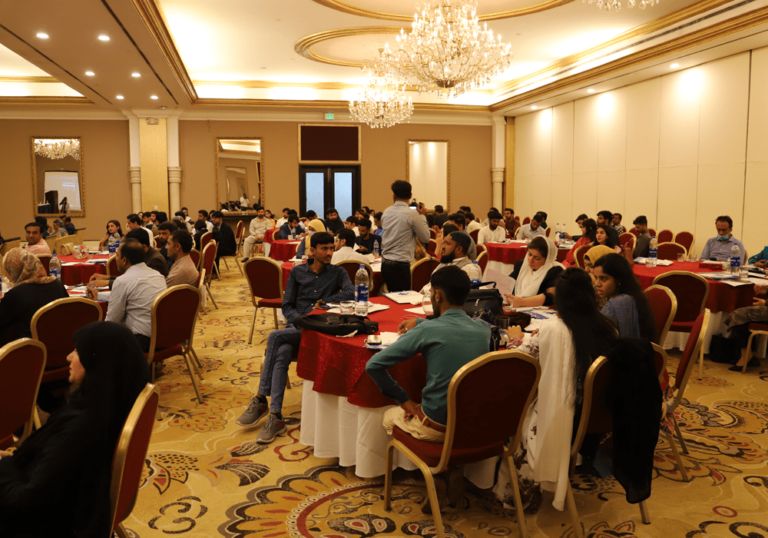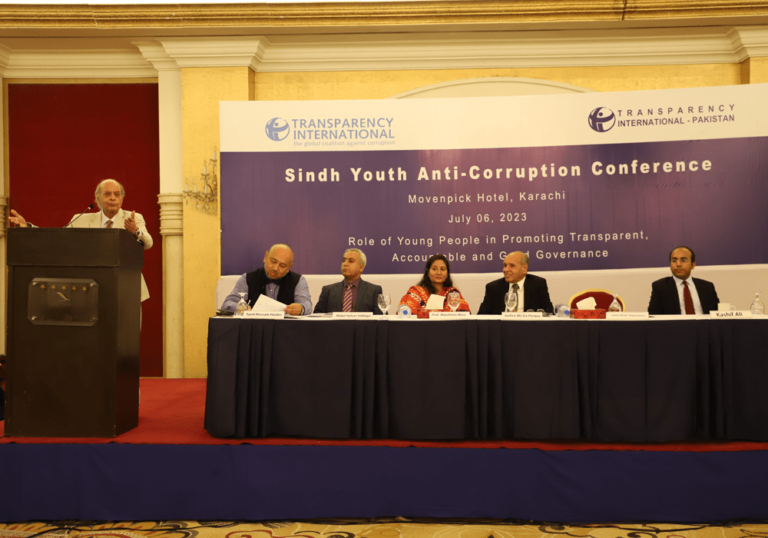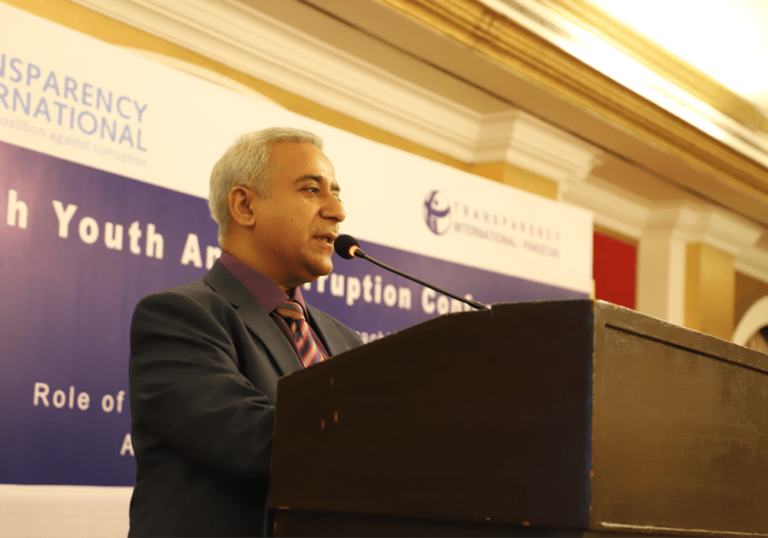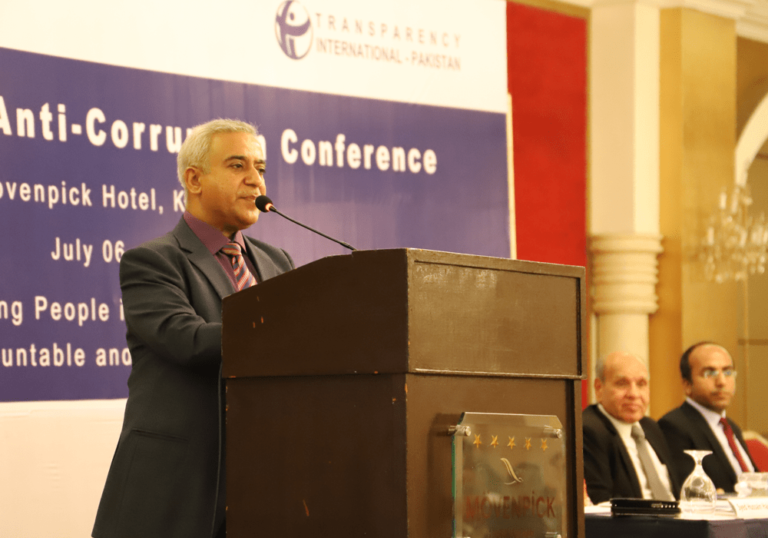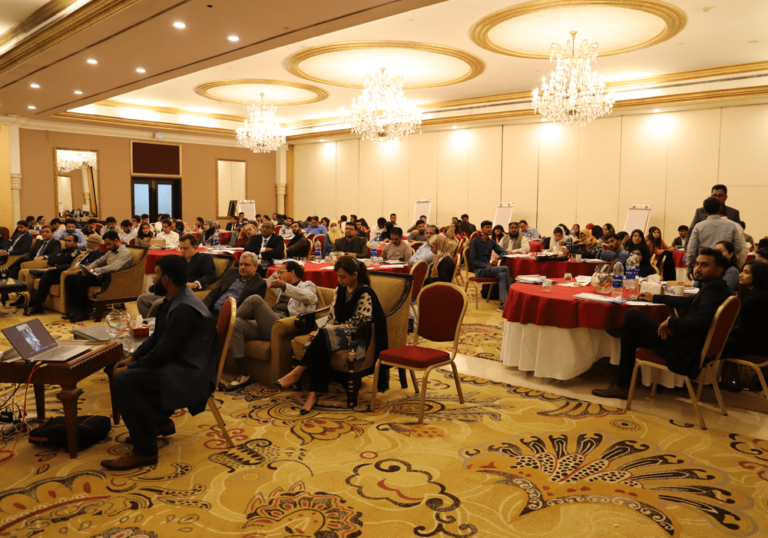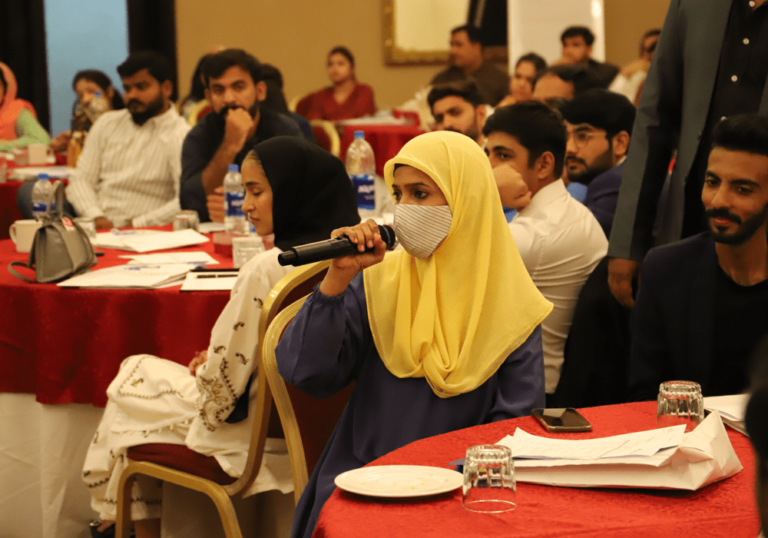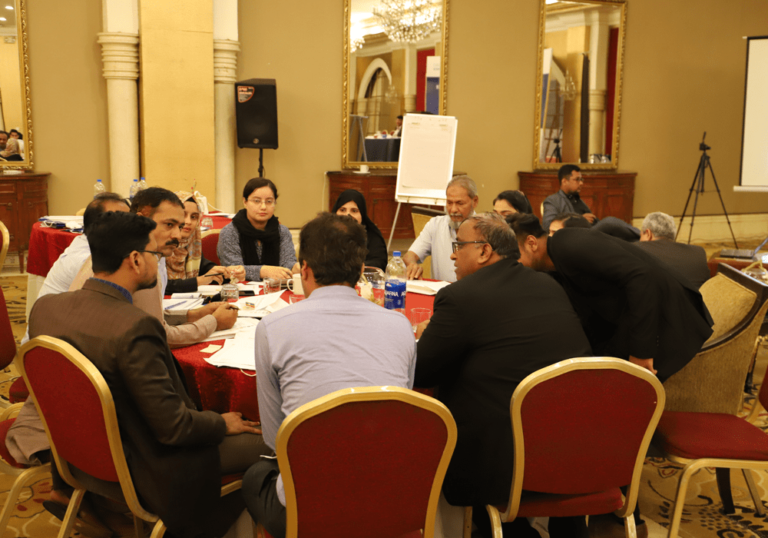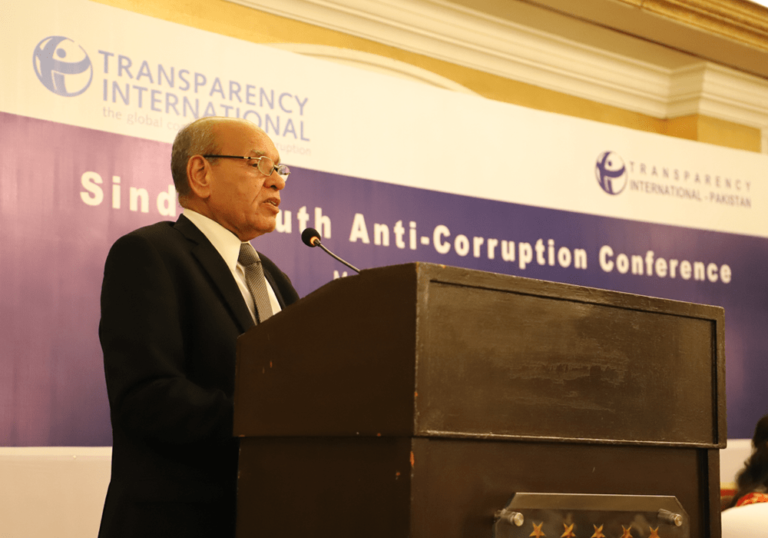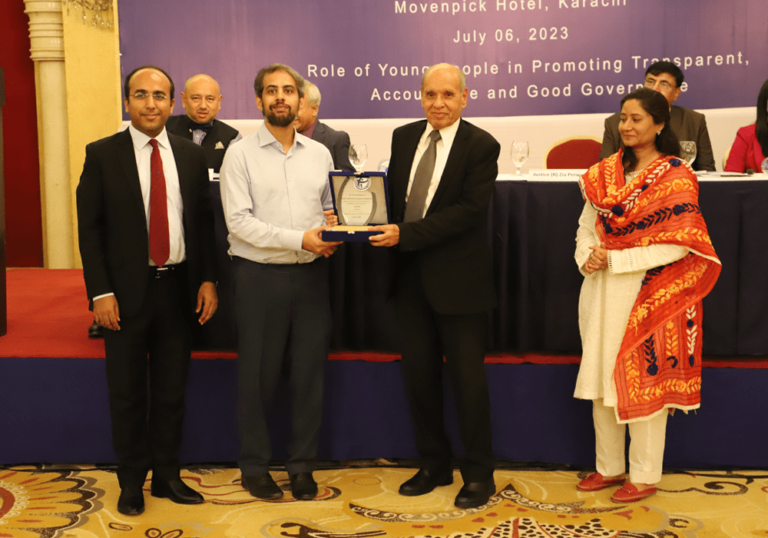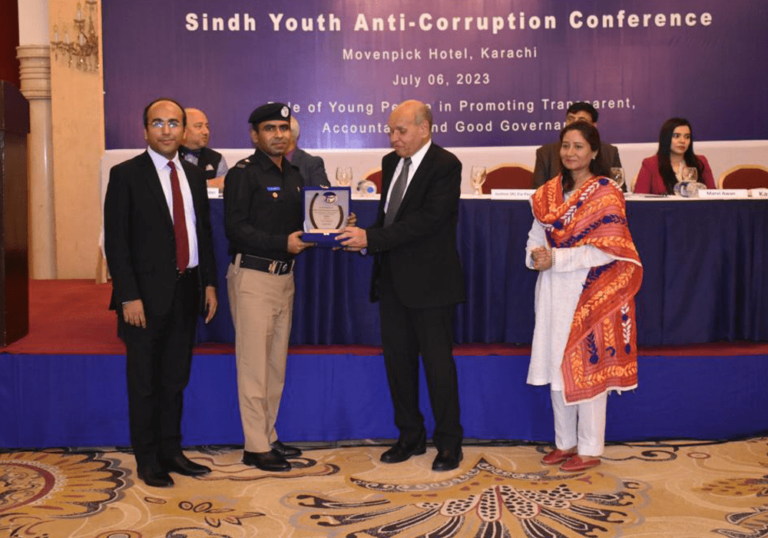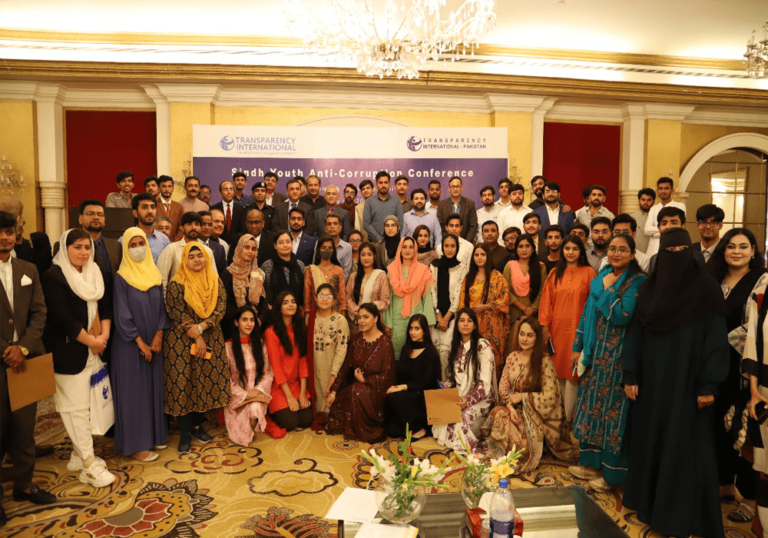- Home
- Sindh Youth Anti-Corruption Conference – Role of Young People in Promoting Transparent, Accountable and Good Governance
Sindh Youth Anti-Corruption Conference – Role of Young People in Promoting Transparent, Accountable and Good Governance
Sindh Youth Anti-Corruption Conference – Role of Young People in Promoting Transparent, Accountable and Good Governance
Date: July 6, 2023
Venue: Movenpick Hotel, Karachi
Transparency International Pakistan organized Sindh Youth Anti-Corruption Conference on the theme – Role of Young People in Promoting Transparent, Accountable and Good Governance, at Movenpick hotel, Karachi.
The primary objective of the conference was to empower young individuals to actively participate in governance processes and promote transparency and inclusivity in their communities and the wider society.
The conference was attended by more than 130 youngsters more than 30 universities from all over Sindh province as well as members of civil society, individuals with special needs and transgenders.
Diverse speakers including Justice (R) Zia Perwez, Former Judge Supreme Court of Pakistan and Chairman TI Pakistan, Mr. Kashif Ali Shaikh, A. Executive Director, TI Pakistan, Justice (R) M. Shaiq Usmani, Former Judge, Sindh High Court and Board of Trustee, TI Pakistan, Ms. Nausheen Wasi, Asst. Professor of International Relation, University of Karachi and Board of Trustee TI Pakistan, Mr. Abdul Hafeez, Siddiqui, Director Investigations, NAB Karachi, Mr. Jawaid Ahmed Khan, A. Director Prevention and Awareness NAB Karachi, Mr. Qamar Raza Baloch, Special Secretary Sports & Youth Affairs Department, Government of Sindh, Mr. Syed Hussain Haider, Integrity Expert, UNODC Pakistan, Mr. Malheer Khan, Deputy Superintendent of Police (DSP) Nawabshah, Sindh, Ms. Marvi Awan, Executive Director Women Protection Centre Sindh, Mr. Junaid Malik from Federal Investigation Agency (FIA) on behalf of Addl. Director FIA Mr. Imran Riaz, Mr. Ahmed Hasan, Monitoring and Evaluation expert, UNDP SDGs Support Unit, Dr. Muhammad Ali Shaikh, RTI Expert and former Vice Chancellor, Sindh Madressatul Islam University Karachi, Mr. Sheikh Hammad Amjad, Youth Trainer and Corporate Consultant were among the distinguished guests.
The conference started at 10:00 AM with the recitation of the Holy Quran.
Mr. Kashif Ali Shaikh A. Executive Director, TI Pakistan gave opening remarks and highlighted that engaging the youth in promotion of transparency accountability and good governance is critical because young people of today will be our leaders of tomorrow. He emphasized that TI Pakistan recognize the need to invest time and resources in training our youth on the importance of transparency, accountability and ethical leadership. He encouraged young people to use the opportunity of education, technology and social awareness, to participate in matters of governance and refrain from corrupt practices. Mr. Ali also highlighted the importance of legal frameworks and government policies to facilitate and promote youth leadership in the public and private sectors. He said that Civil Society Organizations (CSOs) can play an equally instrumental role in offering networking opportunities and capacity-building support for young people.
Ms. Nausheen Wasi, Asst. Professor of International Relations, University of Karachi and member board of trustee TI Pakistan, spoke on the topic “Good Governance – its characteristics and importance”. She highlighted and defined good governance, its complexity (noting its multi-faceted nature) and the channels through which good governance can be enhanced. She described governance as the process of decision-making and its subsequent implementation, emphasizing its role in ensuring transparency in the field of economic, political, and administrative management. She also spoke about different types and styles of leadership, and the significance of youth engagement in fostering inclusive governance. She said that it is imperative for the younger generation to possess a thorough awareness of their rights, roles, and responsibilities before actively participating in politics.
Dr. Muhammad Ali Shaikh, RTI Expert and former VC, SMI University Karachi spoke on the topic “Social accountability using Right to Information”. He presented comprehensive overview of the Right to Information (RTI) and argued that RTI is based on the principle that citizens, who are the ones funding government expenditures and salaries, have the right to know about the actions of their government. RTI is an effective anti-corruption tool and it empowers the citizens to hold governments, especially bureaucracies, accountable for their actions, minimize corruption and inefficiency, increase public participation in state affairs, uphold human rights, promote good governance, and ultimately foster social and economic development. He also discussed in detail the historical evolution of RTI movement which started in Rajasthan India and how after several years of consistent efforts the Rajasthan assembly passed RTI legislation in 2000. He said that it is youth’s social responsibility to use their Right to Information and encouraged then that instead of complaining about the system, young people should raise their voices and ask the governments about the lack of facilities and service delivery gaps where they see it.
Next speaker was Mr. Malheer Khan, DSP Nawabshah who spoke on the topic “How young aspirants can make government more efficient and play their part in good governance”. He shared his life struggle and motivated youth to aim high and achieve their goals. He said that no one can stop a young, talented and full of potential individual to be successful who works hard for his dreams. He encouraged the young audience to embrace failure as a valuable learning experience and emphasized the need for firm determination in pursuing their ambitions. Quoting Quaid e Azam Muhammad Ali Jinnah, Founder of Pakistan, he conveyed a powerful message to the youth, envisioning them as the true builders of Pakistan. Mr. Malheer Khan highlighted the vital role of youth in shaping Pakistan’s future and highlighted key areas where they can contribute to good governance and promote rule of law in Pakistan. These include advocacy and awareness initiatives, active civic engagement, abiding by the law, involvement in local government affairs, and engaging in political volunteerism. Additionally, he emphasized the importance of embracing constructive criticism
Next speaker was Mr. Shaikh Hammad Amjad, Youth Trainer and Corporate Consultant who led an interactive session on “Youth Leadership and Integrity”. He started off by engaging the students in a brainstorming activity focused on defining transparency and accountability, and exploring how these concepts apply to their daily lives. He also talked in detail about TI Corruption Perception Index 2022 and what it means for the country and individual lives. He highlighted that it’s important that every young individual is aware about their rights, constitution of Pakistan, laws and regulation.
Following the tea break, the session conference resumed with a keynote speech on “Democracy and Rule of Law through the participation of young people” by Justice (R) Muhammad Shaiq Usmani, former Judge of the Sindh High Court and board of trustee TI Pakistan. He warmly greeted the audience and expressed his delight at seeing so many young individuals who represented the future of Pakistan. He acknowledged that the previous generations had failed in terms of development and recognized the aspirations of young people to seek better opportunities abroad. He emphasized that in developed countries, individuals from third-world nations are often treated as second-class citizens. Therefore, he encouraged the students to remain in their own country and focus on addressing its challenges for the betterment of Pakistan.
Justice (R) M. Shaiq Usmani then posed a question to the students about the concept of the rule of law. He explained that a just system that upholds fairness and equality is the essence of the rule of law. He urged the youth to recognize the influence of social media in the present era, young generation should organize themselves and prepare for the new challenges that lie ahead. He emphasized the need for proactive engagement, encouraging students to discuss societal issues, generate innovative ideas, form youth groups within universities, and raise awareness among their peers. By doing so, he believed that the youth could become effective problem solvers, contributing to the progress and development of their country. He also regretted that youth is not represented adequately in formal political institutions and processes such as parliaments, political parties and public administrations and emphasized on the need to empower youth which can turn Pakistan into most prosper nation.
Next speaker was Mr. Ahmed Hasan, Monitoring and Evaluation expert, UNDP Sustainable Development Goals SDGs Support Unit Sindh. He spoke on the topic “Youth-Driven Governance: Empowering Agents of Transparency and Accountability for Monitoring and Evaluation”. He gave students an overview of the 17 SDGs and emphasized that the youth has a critical role in monitoring the progress and implementation of the SDGs in Pakistan.
Afterwards, Prof. Syed Hussain Haider, Global Integrity Expert, UNODC Pakistan spoke on the topic “Role of Youth in Promoting Transparent, Accountable Governance and Curbing Corruption”. He emphasized on the importance of empowering the voices of the youth. He acknowledged the feeling of voicelessness that many young individuals experience, where they witness societal injustices and lack opportunities but feel unable to make a difference.
Prof. Syed Hussain Haider urged the youth to overcome their fear of speaking out and not let their voices remain suppressed. He encouraged them to form youth clubs and societies, continuously raising their concerns and protesting against injustices. He assured them that with persistence, their voices would eventually be heard resulting in bringing about a positive change.
Furthermore, Prof. Syed Hussain Haider engaged the youth in a discussion about the book “8 Habits” and highlighted key traits of effective leadership. He stressed the importance of honesty, which was rated highly by 85% of the respondents. He emphasized that a leader should be visionary, serve as a role model by aligning words with actions, and possess competence. Additionally, he highlighted the significance of self-accountability and unity among individuals. He illustrated the power of unity by explaining that one plus one can be two, eleven, or even three hundred and eleven, demonstrating the exponential impact that can be achieved through collective action.
Moving on, Mr. Abdul Hafeez Siddiqui, Director Investigations, National Accountability Bureau (NAB) Karachi gave comprehensive overview of NAB efforts in the fight against corruption. He highlighted that the mission of NAB is to eliminate corruption through a comprehensive approach encompassing prevention, awareness, monitoring, and combating. He encouraged young people to practice self-integrity and play their part in the promotion of good governance and fighting corruption.
Next speaker was Mr. Junaid Iqbal who represented Mr. Imran Riaz, Additional Director FIA Karachi and discussed in detail the work conducted by the FIA. He outlined the areas and mechanisms in which the FIA operates, defining its jurisdiction and briefed youth about the mechanisms which exist for the general public to reach out to FIA for registering complaints.
Afterwards, Ms. Marvi Awan, Executive Director Women Protection Centre Sindh spoke on the topic “Protection of Women Rights and their Participation in Political Process”. She said that young women face more challenges than young men. She said that almost half of our population which is women, have difficulty to have opportunities to educate themselves, to learn, to grow, to work and to earn. With that less awareness and education, women face greater obstacles to participate in political processes and being elected.
Next, students formed into breakout discussion groups on the following topics:
- Youth and Human Rights
- Youth and SDGs
- Youth and Political Engagement
- Youth Leadership and Integrity
- Youth and Social Accountability
- Women participation in Good Governance
- Youth in Governance
- Youth Advocacy and Mobilisation
Students worked in groups along with expert group leaders assigned to each group to identify challenges and opportunities for youth engagement around the assigned topics prepare action points. TI Pakistan will use the recommendations prepared by expert group discussion to feed into our upcoming activities and advocacy.
After breakout groups, Mr. Qamar Raza Baloch, Special Secretary Sports & Youth Affairs Department, Government of Sindh highlighted Sindh government’s commitment towards addressing the problems faced by youth and increasing opportunities for them to utilize potential of young people.
In the closing remarks, Justice (R) Zia Perwez, former Judge Supreme Court of Pakistan and Chairman TI Pakistan said that he hopes that all participants, as youth representatives, would be able to emerge as active citizens and actively engage in politics. He said that change starts with us. Our actions today will shape the world we inherit tomorrow and our youth can be crucial part of this change.


